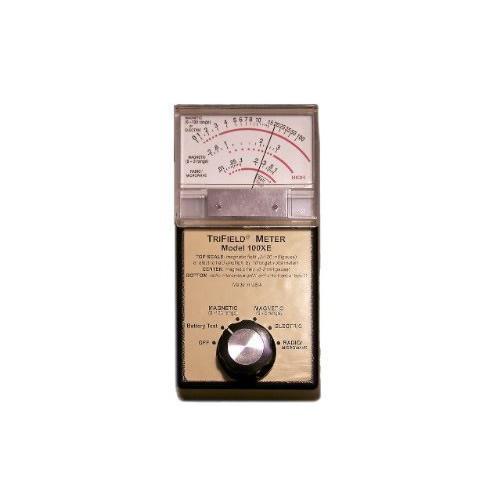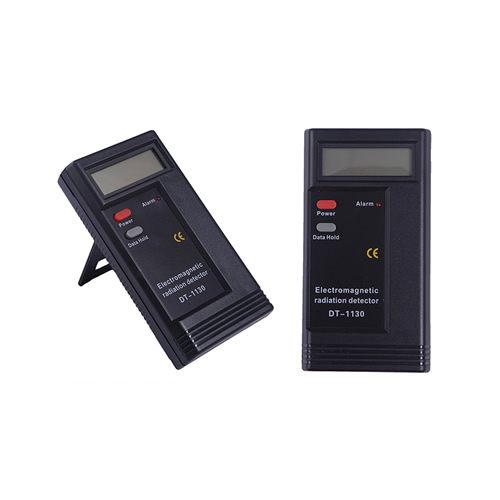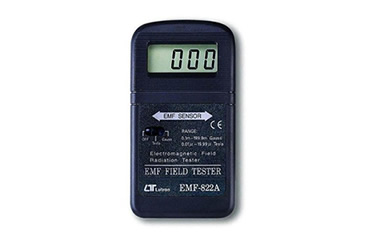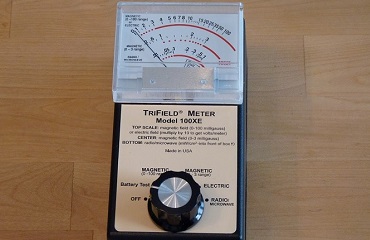EMF Detectors
Check out our article on the best EMF detectors
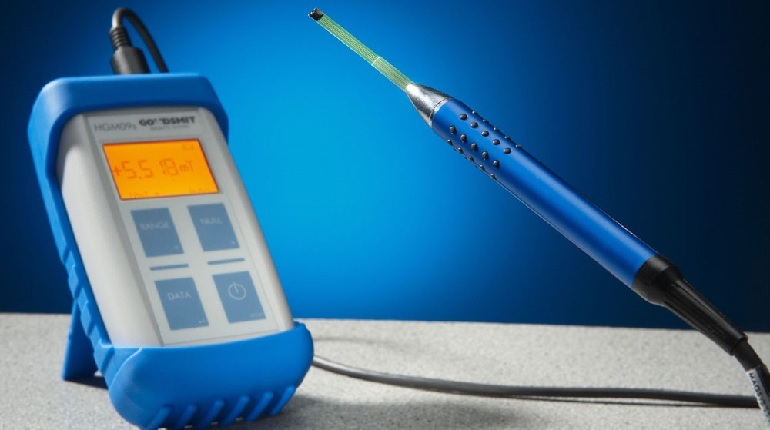
Many people today are concerned about levels of "electromagnetic smog", caused by EMF fields and electromagnetic radiation. People want to know how to measure levels of electromagnetic radiation and purchase detectors and meters for their own use to perform checks on radiation levels in their own homes. Electromagnetic fields or electromagnetic radiation meters are often divided into 3 main categories according to the type of radiation they are designed to measure: low frequency, high frequency and radioactivity.
Low frequency radiation meters measure electromagnetic fields from electrical devices such as power cables and transformers. Whereas high frequency radiation meters measure electromagnetic fields caused by radio waves and microwaves from mobile phones and masts, WiFi internet, cordless phones, bluetooth devices, RF alarm systems, microwave ovens, wireless game consoles, TV and radio antennas and radar systems. Radioactivity meters fall outside the scope of this article really but measure alpha and beta particles, gamma and X rays. They include devices such as radon monitors and Geiger counters. The properties of electromagnetism vary depending on frequency, with electric and magnetic fields behaving quite differently along the electromagnetic spectrum. For example some materials can be transparent to visible light, yet opaque to infrared light and at the same time transparent to radio frequency radiation!
The two main ways to measure electromagnetic radiation are to measure the magnetic fields strength or to measure the radio frequency power density. EMF Detectors that measure magnetic field strength analyse the changing field properties of the magnetic field, but a detector in motion will not measure this accurately, so an accurate quantitative measurement can only be carried out when stationary, although they can still be used to survey a building with a magnetic field meter taking measurements while walking around as a strategy to find “hot spots”.
EMF detectors that measure RF (radio frequency) radiation look for higher than expected radio frequency power density, but this can be difficult as RF radiation will penetrate through many materials, but reflect off others. So in densely populated areas with more mobile antennas and a dense power distribution network, RF detectors can produce apparent high power densities in certain areas and finding the true source of the RF radiations can be incredibly difficult.
Using separate RF meters or antennas with directional and more focused targeting can be really useful in these circumstances. Low frequency EMF detectors will also show higher readings when near electrical cables which are found in any occupied property.
It can take some skill and common sense to interpret readings on EMF detectors as they can be influenced by many sources such as mobile phone masts, power lines, transformers, various electronic and wireless devices, wireless phones and wi-fi modems, and older homes with wiring problems. Many believe they can also be influenced by ghosts! Ghost hunters use EMF meters (ghost detectors) to look for spikes that suggest a change in electrical current, which they believe could show the presence of a spirit being. However, even though the association between EMF detectors and ghosts is frequently made, there is no firm evidence whatsoever connecting the two. Most scientists believe that "ghost hunters" use EMF detector's to lend some credibility to an activity that is really pseudoscience. That being said, if you are running around looking for ghosts, then concrete evidence and robust scientific studies are probably not that important to you!
Our favourite EMF detectors
-
Best Detector
Trifield 100XE EMF Meter
£110 -
Budget Detector
HDE DT-1130 EMF Meter
£13
Choosing an EMF detector is relatively simple once you decide exactly what you need it for and have set a budget. No single electromagnetic meter can do everything well, so you first have to decide what you are going to measure. For example do you want to measure magnetic fields, radio frequency fields or electric fields? What frequencies are you most interested in and how sensitive do you need the EMF detectors to be? For example, if you are going to measure radiation from cell towers, cordless phones, Wi-Fi modems etc then you will need a high frequency radiation meter which measures electromagnetic field power density which should be capable of recording radiation in the frequency range 800-2500MHz (or higher). But on the other hand, if you are more interested in measuring radiation from power cables, transformers and pylons - then you will need a low frequency radiation meter which measures low frequency magnetic and/or electric fields which should be able to measure radiation in the frequency range of 50-60Hz.
Many amateur users will be looking for a meter that measures all types of non-ionizing radiation (ie. non-nuclear), these meters do exist and are referred to as combination meters, they measure all major types of radiation except radioactivity and usually cost a lot less compared to buying several different meters, but they do perform as well in terms of detection and accurate measurements as meters designed for a specific type of radiation.
Trifield 100XE EMF Meter
A great combination detector for those looking to invest around £100 or more is the Trifield 100XE EMF Meter. This 3 axis detector measures the Magnetic & Electric radiation from 3 angles and is very popular for home surveys and serious paranormal researchers. In addition, there is a function which can even be used to detect hidden bugs! The Trifield Meter measures AC magnetic field, AC electric field, and radio frequencies. Operating about 40 hours on the replaceable standard 9V battery, the Trifield 100XE also uses an analogue display with a needle which has very fast response time compared to digital displays and makes it easier to detect hotspots.
HDE DT-1130 Portable EMF Meter
A good budget option for under £15 is the HDE DT-1130 Portable Electromagnetic Radiation Meter. This detector is great for both the hobbyist or the professional ghost hunter or paranormal investigator and allows the user to know exactly how much radiation is being emitted from electronic appliances and wiring. Handy for DIY too if you need to check whether or not a cable is "live". This cheap and portable EMF detector is simple to use and measures electromagnetic radiation by simply holding the detector near the device you want to check.


